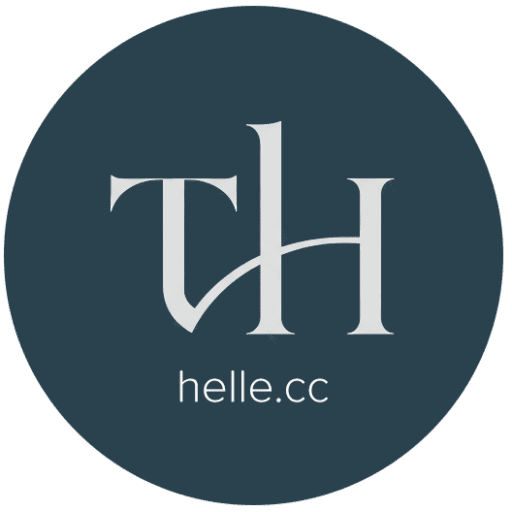SciBase enters into collaboration and license agreement with Castle Biosciences to develop diagnostic tests in dermatology and plans to carry out a directed issue of approximately SEK 30 million.
SciBase and Castle Biosciences Collaborate to Advance Dermatological Disease Treatments
SciBase and Castle Biosciences have entered into a collaboration and licensing agreement to jointly explore and develop various clinical indications related to dermatological diseases. SciBase’s initial territory will encompass the EU, Switzerland, the United Arab Emirates, Japan, and South Korea, while Castle Biosciences will focus on North America.
If the development efforts are successful, SciBase will receive a single-digit royalty percentage on Castle Biosciences’ gross margin, as well as a low double-digit percentage markup on product sales to Castle Biosciences. Additionally, SciBase will be entitled to a milestone payment of $5 million USD upon Castle Biosciences achieving $50 million USD in annual sales. While the development agreement involves shared development costs, SciBase will defer its clinical development expenses against future compensation from royalty and milestone payments for the initial indication of pre-symptomatic predictable flares in patients diagnosed with atopic dermatitis.
“This collaboration with Castle Biosciences is very exciting for SciBase,” says Pia Renaudin, CEO of SciBase. “It will accelerate the use of Nevisense within the skin barrier market. It will rapidly broaden our already existing pipeline of clinical studies by increasing the number of studies, ultimately accelerating access to more effective treatments for patients with skin barrier dysfunction. We are also pleased to welcome Castle as a shareholder in SciBase.”
“We are excited to broaden our commitment to dermatologists, clinicians, and patients through the signing of this agreement,” says Derek Maetzold, CEO of Castle Biosciences. “Atopic dermatitis is a disease that affects a significant number of people worldwide. We are excited about this opportunity to collaborate with SciBase to develop a test that can improve the treatment of patients diagnosed with this disease, and potentially other dermatological diseases. We believe the collaboration is a good fit for Castle given our existing commercial portfolio of tests in skin cancer, as well as our test under development for use in patients diagnosed with moderate to severe atopic dermatitis seeking systemic treatment – the majority of whom are managed by the same dermatologists.”
In conjunction with the collaboration and licensing agreement, SciBase intends to conduct a directed share issue of approximately SEK 30 million. The subscription price in the directed share issue corresponds to SEK 0.40 per share. Castle Biosciences has committed to subscribe for 47,886,950 shares in the directed share issue, corresponding to approximately SEK 19 million. Through the directed share issue, Castle Biosciences will become one of SciBase’s largest shareholders. Further information regarding the directed share issue will be announced in a separate press release in connection with this press release and will be available on SciBase’s investor relations website.
About Skin Barrier Dysfunction
Skin barrier dysfunction is a significant contributing factor to a variety of skin diseases, including atopic dermatitis, psoriasis, ichthyosis, rosacea, and even acne. Estimates suggest that over 500 million people globally suffer from conditions in which skin barrier impairment plays a central role.
Estimated Global Prevalence per Condition:
- Atopic dermatitis (eczema): ~223 million
- Psoriasis: ~125 million
- Rosacea: ~400 million (many with impaired barrier function)
Additionally, there is a broad spectrum of cosmetic and subclinical skin problems – such as dryness, irritation, and product sensitivity – linked to mild or temporary disruption of the skin barrier. These milder forms may affect over a billion people globally at some point in their lives.
This information is information that SciBase Holding AB (publ) is obliged to make public pursuant to the EU Market Abuse Regulation. The information was submitted for publication on June 16, 2025, at 22:30 CEST through the contact person set out below.
About Castle Biosciences
Castle Biosciences (Nasdaq: CSTL) is a diagnostics company that improves health through tests that guide patient care. The company aims to transform disease management by putting people first: patients, physicians, employees, and investors.
Castle’s current product portfolio consists of tests for skin cancer, Barrett’s esophagus, and uveal melanoma. In addition, the company has active research and development programs for tests in these and other diseases with high clinical need, including a test under development to guide the choice of systemic treatment for patients with moderate to severe atopic dermatitis seeking biologic treatment.
For Further Information, Please Contact:
Pia Renaudin, CEO, tel. +46732069802, e-mail: pia.renaudin@scibase.com
Certified Advisor (CA): DNB Carnegie Investment Bank AB (publ) Tel: +46 (0)73 856 42 65 E-mail: certifiedadviser@carnegie.se
About SciBase and Nevisense
SciBase is a medical technology company specializing in early detection and prevention within dermatology. SciBase develops and sells Nevisense, a platform that combines AI and advanced EIS technology to improve diagnostic accuracy and ensure the prevention of skin diseases.
Our commitment is to minimize patient suffering, enable physicians to improve and save lives through rapid detection, and reduce healthcare costs.
Based on more than 20 years of research at the Karolinska Institute in Stockholm, SciBase is a leader in dermatological development.
The company has been listed on Nasdaq First North Growth Market since June 2, 2015.
———————————————————————————————————————
1Global Report on Atopic Dermatitis – https://www.eczemacouncil.org/assets/docs/global-report-on-atopic-dermatitis-2022.pdf.
2https://www.psoriasis.org/psoriasis-statistics/.
3https://www.rosacea.org/rosacea-review/2018/summer/study-estimates-415-million-people-affected-by-rosacea-worldwide.
Enjoyed this post by Thibault Helle? Subscribe for more insights and updates straight from the source.






